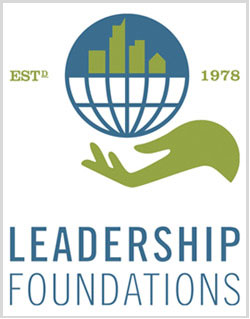Que Dramatico!
February 21, 2010 Leave a comment
“Why do you have to be so dramatic!” I thought as I rolled my eyes. The speaker was telling stories of immigration officers pounding down doors and ripping mothers away from their children, of fathers leaving for work and being deported, never to say good bye. It all seemed so extreme. Maybe there were a few cases like that but, come on! This is the United States of America. We have order and compassion. Let’s not be dramatic in our case studies. Maybe you have thought the same things. This is what I thought until it started happening in my neighborhood.
Lately our ministry gets more calls asking for help to find relatives that have been detained or deported. Last week a mother called crying. She was hiding in her closet with her four children, afraid to open the door to the immigration officers outside. “We have never had any problems with the law before,” she cried, as my mind raced to know how to advise her. “I don’t know why they have come.” Clearly the immigration agents have a reason and right to ask her for her documents. She has been in the US for seventeen years. Her four children were born here. Her husband was at work. She stayed in the closet until they left. What would you do?
What will we do? Maybe you are rolling your eyes, thinking, “how dramatic!” but the fact of the matter is that the same scene could have played out this morning for your children’s schoolmates or one of your acquaintances. Chances are that at some point throughout your day, you encountered a neighbor who does not have legal documents to be in this country. There are around 12 million people in that situation in our country and knocking on their doors while they hide in the closet is not an effective nor American way to deal with the situation we find ourselves in.
There are many reasons that people do not have legal documents. The system for obtaining documents is completely broken and we must come up with a way for people to literally come out of their closets and participate in legal ways in our society. It is not safe for us to have neighbors driving around with no licenses or insurance. It is not fair to workers for undocumented laborers to be working without paying taxes. And it does not represent our best values to have neighbors who do work hard and contribute to our community be terrified to walk out the front door every morning. This is the land of the free.
So what will we do to solve the situation? Yesterday Representative Gutierrez introduced the Comprehensive Immigration Reform for American’s Safety and Prosperity Act (CIR ASAP). It is a step toward looking at workable solutions that support our values of freedom and hard work. Not everyone supports it. Some say it is too dramatic. As of right now there are no Republicans co sponsoring the bill. But it is a conversation starter. It is a solution oriented bill to move us forward as a nation. Anne Lamott says to write “sh**** first drafts”. Write something; get started. This bill is a start- a first draft that we can examine and pour over and edit until we design a piece of legislation that will give some clear steps for undocumented immigrants to take so that they can earn a rightful place in our neighborhoods, workplaces and country.
The next time a neighbor calls I want to be able to say, “This is what you need to do- step 1, step 2, step 3…”. No more hiding for any of us. Let’s solve this thing together.
Crissy Brooks, Mika CDC, Costa Mesa



